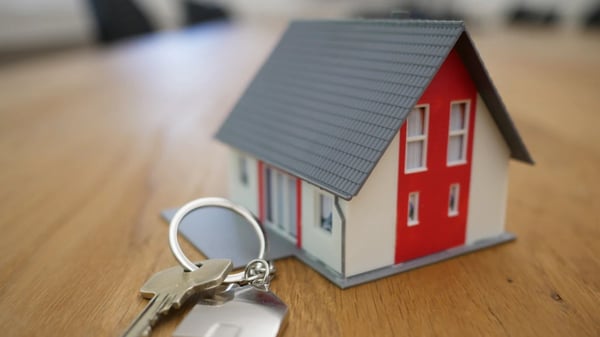In a previous article, we covered the pros and cons for French nationals buying property abroad in the European Union (EU). We also wanted to share some practical pointers for those considering making a purchase. Perhaps you're one of the 600,000 plus French expats already living in the EU and planning to invest in your main residence abroad, or maybe you're looking to move, buy a holiday home or set up a rental income. Whatever your reason, we hope you find these three tips useful.
Planning on buying property overseas? Avoid hefty markups on exchange rates when buying and selling overseas real estate with CurrencyFair's low-margin FX rates.
#1: Seek unbiased advice
Whether or not it's a legal requirement for buying a home, it's always a good idea to secure some local support before you start your search. This might take the form of a notary, lawyer, or real estate broker. Your contact should have a solid understanding of any relevant legal considerations, as well as the market, and be able to help you avoid making a costly mistake.
Most importantly, your advisor shouldn't directly benefit from any purchase you make and must be able to offer completely honest and unbiased advice. Even better if your contact speaks French if you're buying in a country where French isn't widely spoken. If not, and if you don't speak the local language fluently, you could enlist the support of a translator.
#2: Consider how you will finance your purchase
Buying a property is a totally different matter when you're operating in a different country, especially if you're relying on a loan. It might be relatively straightforward for you to secure a mortgage for a home in France, but that might not be the case when investing in real estate abroad. It is possible to get a loan in France to buy a property abroad, but the buyer will have to give a guarantee on a property which is located in France, or a life insurance pledge.
It may be easier to borrow directly from a bank abroad, but your eligibility could depend on a number of factors. For example, how long you've lived in the country, whether or not you're employed and your individual credit rating. Expats may need to pay a larger deposit if the bank isn't satisfied with one or more of these criteria.
#3: Investigate all tax and other legal implications
It's crucial to find out if there are any specific tax nuances that you need to consider when investing in real estate outside of France. The tax you may be required to pay will vary depending on how you intend to use your property abroad, and where you are resident. For example, if the property abroad is your main residence then you'll probably pay taxes on it outside France. However, if it's a rental income or holiday home then the situation may differ. We've pulled together a separate piece that covers filing taxes for residents and non-residents.
Also, you should look into what would happen to your property in the case of your death. Succession law, dictating who will inherit your property, varies considerably from one EU country to another. Fortunately, EU rules allow you to choose that the law of your country of nationality should apply to your inheritance. For example, as a French person living in Italy, you can state in your will or a separate declaration that you would like French succession law, rather than Italian, to apply to your international estate. However, it's important to note that some countries, such as Denmark and Ireland, do not participate in these succession law regulations.
Potential risks of buying property abroad
A property is a major investment, and can come with more risks than a purchase at home. There might be hidden costs that you're not aware of as a foreigner, such as licences to acquire, compliance certificates, building and pest inspections. Not to mention repairs, local taxes, and if you're buying to let, costs associated with finding tenants and evicting them if necessary. A property also typically takes a long time to sell, which means there might not be the option of a quick return to France. You could be tied to your second home for longer than you like.
However, for many French nationals, a property purchase in the EU can be less expensive than renting while living abroad, and perhaps even a lucrative investment opportunity. Just be sure to take your time in making a decision, and consider all pros and cons for your personal situation.
Planning on buying property overseas? Avoid hefty markups on exchange rates when buying and selling overseas real estate with CurrencyFair's low-margin FX rates.
Disclaimer: This article is for general information purposes only and does not take into account your personal circumstances. This is not investment advice or an inducement to trade. The information shared is for illustrative purposes only and may not reflect current prices or offers from CurrencyFair. Clients are solely responsible for determining whether trading or a particular transaction is suitable. We recommend you seek independent financial advice and ensure you fully understand the risks involved before trading. Leveraged trading is high risk and not suitable for all. Losses can exceed investments. Opinions are the authors; not necessarily that of CurrencyFair or any of its affiliates, subsidiaries, officers or directors.

.jpg?width=1170&name=christian-allard-RlNXFBkOU2k-unsplash%20(1).jpg)


%20(1).jpg?width=600&name=sebastian-herrmann-KvAzgHvM_-A-unsplash%20(1)%20(1).jpg)







